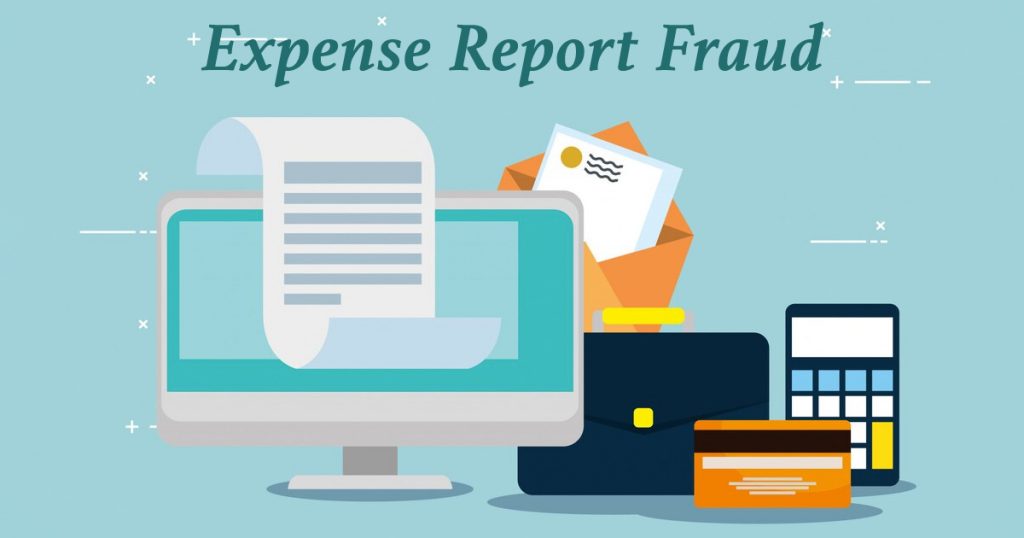Expense fraud is when employees submit false reimbursement claims, costing businesses money and damaging trust. This issue, also known as expense report fraud or expense reimbursement fraud, happens in many ways. It can range from inflating legitimate expenses to submitting fake receipts. If left unchecked, expense fraud can lead to significant financial losses.
What Is Expense Fraud?
Expense fraud occurs when someone submits false information to get reimbursed for expenses they didn’t incur or exaggerated claims for expenses. Businesses typically reimburse employees for legitimate costs like travel, meals, and supplies, but some take advantage of this system.
Here’s an example of expense report fraud:
An employee submits a receipt for a $500 hotel stay, but they spent only $350. The remaining $150 is pocketed as fraudulent reimbursement.
This small action may not seem significant, but repeated instances can add to significant company losses.
Common Types of Expense Report Fraud
Understanding common methods of expense fraud helps businesses identify and address the issue. Here are examples:
Fictitious Expenses
This happens when employees claim expenses that never occurred. For example, they might create fake receipts for meals or trips they never took.
Overstated Expenses
Employees inflate real expenses to keep the extra money. For instance, a $15 meal could be reported as costing $40.
Mischaracterized Expenses
Personal expenses are claimed as work-related. An example is submitting a personal vacation as a business trip.
Duplicate Claims
This involves submitting the same expense more than once to get reimbursed twice. Without proper checks, these claims can go unnoticed.
Unauthorized Spending
Employees may seek reimbursement for purchases that don’t follow company policies, such as luxury items or personal services.
Why Do Employees Commit Expense Fraud?
Employees commit expense fraud for several reasons, often related to personal or workplace issues. These include:
- Employees may commit fraud due to financial struggles, such as personal debts or money problems, which push them to file false claims for extra cash.
- Weak expense policies or poor oversight in the workplace can create opportunities for fraud to go undetected.
- Feeling unfairly treated or underpaid may lead some employees to justify fraudulent actions as compensation.
- The belief that they won’t get caught or face consequences makes some employees more likely to take the risk.
- A toxic workplace culture, where dishonesty is common or ethical standards are not enforced, can also encourage fraud.
Consequences of Expense Reimbursement Fraud
The Association of Certified Fraud Examiners (ACFE) estimates that companies lose 5% of their revenue to expense fraud each year, with an average loss of $145,000 per case. The longer fraud goes unnoticed, the more it hurts a business financially. Expense fraud impacts both employees and companies in different ways.
For Employees:
- Employees caught committing fraud often face disciplinary actions, which can include termination.
- Large-scale fraud may result in legal trouble, including criminal charges, fines, or even jail time.
- Being caught committing fraud can damage an employee’s reputation, harming their career prospects and trustworthiness.
For Companies:
- Repeated fraud can cause financial losses, reducing resources that could have been used for growth.
- Fraud incidents may lead to distrust among teams, eroding collaboration and morale within the organization.
- Unchecked fraud can create regulatory risks, potentially resulting in compliance violations and fines.
Expense Report Fraud Punishment
The punishment for expense report fraud depends on how serious the offense is and the company’s policies. Common consequences include:
- Being terminated from employment, as many companies have strict rules against fraud and may fire employees caught committing it.
- Facing legal action in severe cases, which can result in fines or even criminal charges.
- Having to repay any money received through fraudulent claims.
How to Prevent Expense Fraud
Stopping expense fraud requires a mix of clear policies, proper tools, and regular checks. Here are some ways to protect your business:
1. Set Clear Expense Policies
- Clearly define what expenses are reimbursable.
- Set limits for common expenses like meals, hotels, and travel.
2. Use Expense Management Software
Automated systems reduce errors and flag suspicious claims, saving time and money.
3. Audit Regularly
Periodic checks can identify patterns or red flags, such as repeated claims for the same receipt.
4. Request Detailed Receipts
Require original receipts for all claims and avoid accepting vague or incomplete submissions.
5. Encourage Ethical Behavior
Foster a transparent culture where employees feel accountable for their actions.
6. Regular Employee Training
Training employees on expense policies helps them understand acceptable submissions. It should also explain the consequences of fraud and how to file accurate reports.
7. Implement Strong Internal Controls
Requiring multi-level approvals for large expenses can help prevent fraud. Also, setting clear consequences for those caught committing fraud will discourage others from doing the same.
How Technology Helps Detect Fraud
Advanced tools like expense management software can catch expense reimbursement fraud more effectively. These tools verify receipts, flag duplicates, and compare claims to company policies automatically.
For example, some software can detect if an employee submits the same receipt more than once or uses suspicious patterns, like always claiming maximum allowances.
Preventing Expense Fraud Can Strengthen Your Company
Expense fraud may seem small at first, but it can have a big impact on a company’s finances and trust. If left unchecked, it can damage relationships and create a negative work environment. The best way to prevent fraud is by promoting transparency and accountability.
With clear policies, employee training, and the right technology, companies can stop fraud before it starts and create a workplace based on honesty and trust. This approach benefits everyone and helps the business succeed in the long run.
